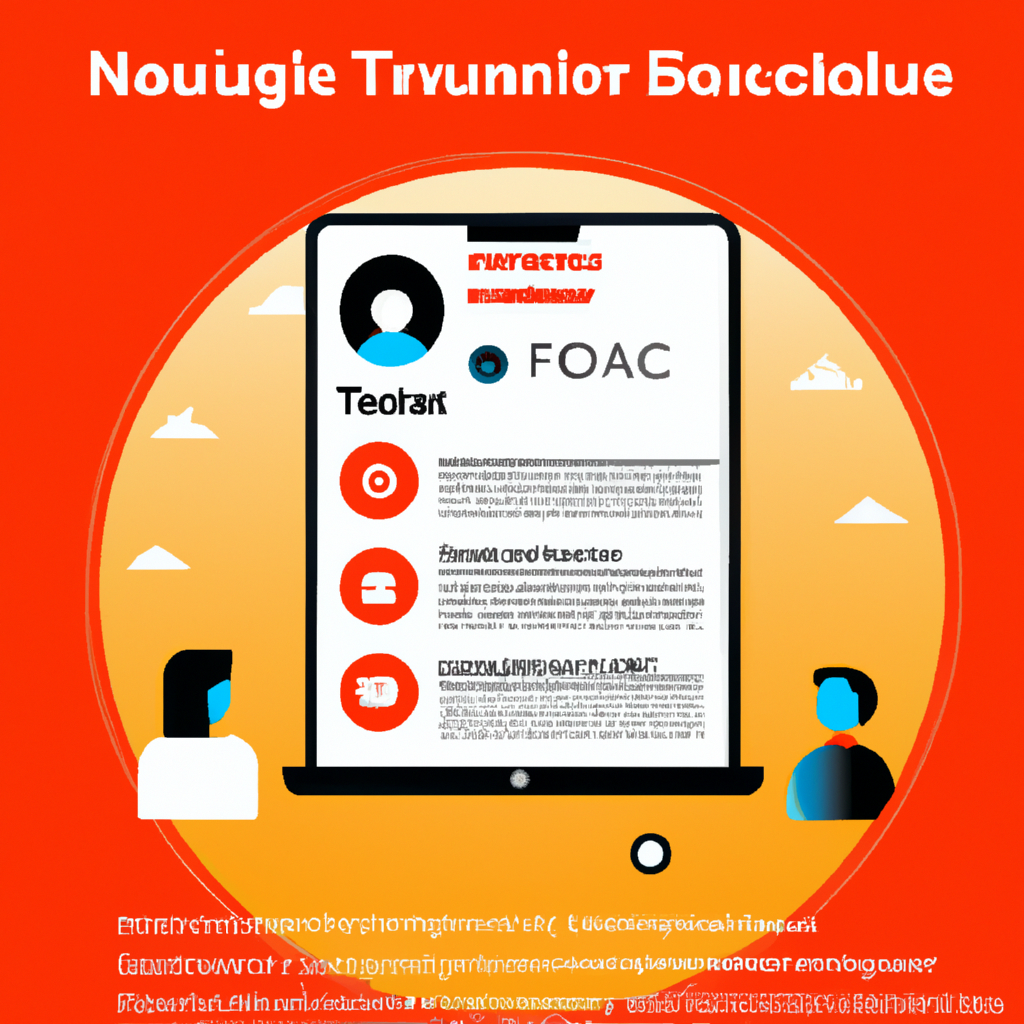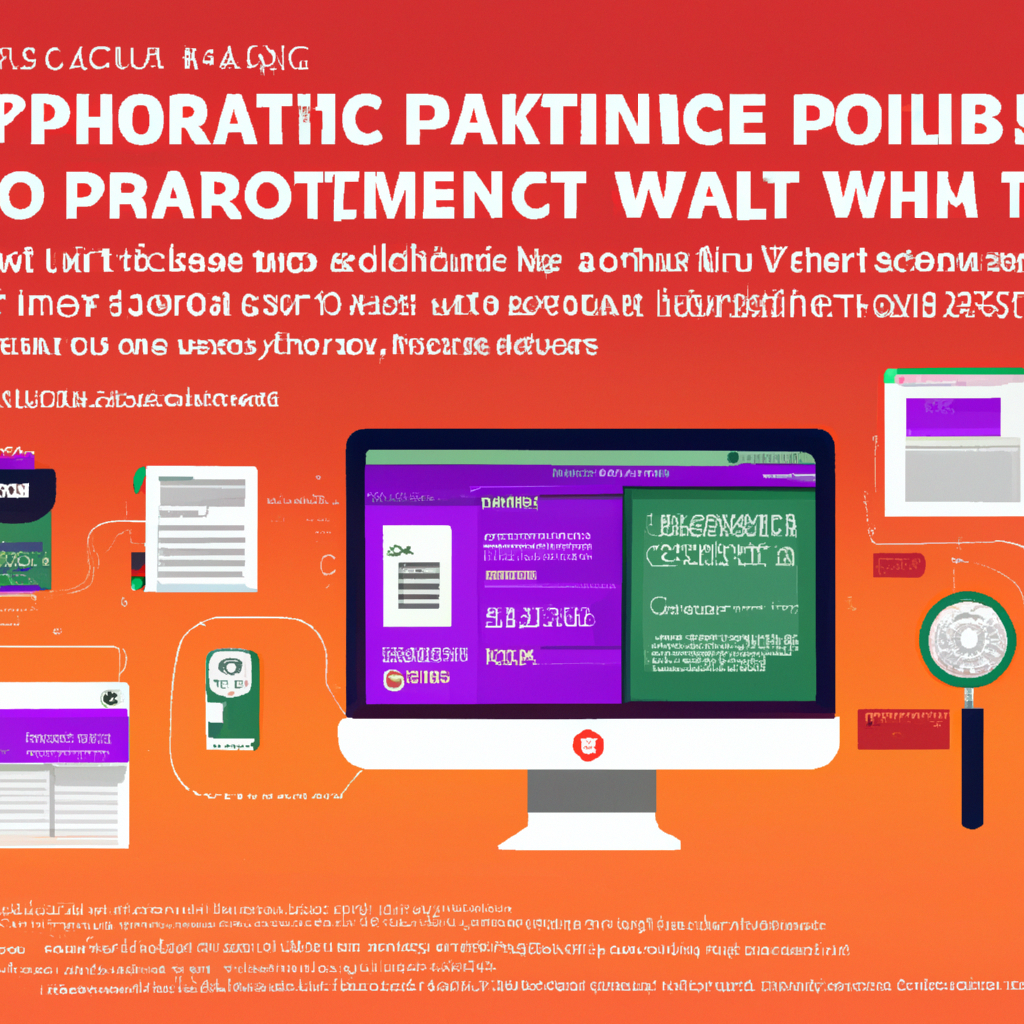Creating a digital portfolio for tech-related job positions is essential in showcasing your skills and abilities to potential employers. It serves as a visual representation of your work and accomplishments, allowing you to stand out from the competition. In your digital portfolio, you should include projects and examples that highlight your technical proficiency, problem-solving capabilities, and creativity. Additionally, incorporating a brief bio, contact information, and testimonials can provide employers with a holistic view of your capabilities and professionalism. By curating a well-rounded digital portfolio, you can effectively demonstrate your expertise and increase your chances of landing your dream tech job.

Skills and Expertise
Programming Languages
In your digital portfolio, it is essential to showcase your proficiency in various programming languages. Include the languages you are most comfortable with and provide examples of projects you have worked on using those languages. This will demonstrate your ability to adapt to different coding environments and showcase your versatility as a programmer.
Frameworks and Libraries
Highlighting your knowledge and experience with frameworks and libraries is crucial in today’s tech industry. Include the frameworks and libraries you have used in your projects and describe their purposes. This will show employers that you are familiar with the latest industry tools and can use them efficiently to develop solutions.
Database Management
In a tech-related job, understanding database management is crucial for handling and analyzing large amounts of data. Include the database management systems you have experience with, such as MySQL, Oracle, or MongoDB. Additionally, mention any projects where you have successfully implemented database solutions and improved data efficiency.
Cloud Platforms
Cloud computing has become an integral part of the tech industry, so including your experience with cloud platforms is essential. Emphasize the platforms you have worked with, such as Amazon Web Services (AWS), Microsoft Azure, or Google Cloud Platform. Showcase your ability to deploy applications and manage infrastructure in the cloud, as this is a valuable skill in today’s tech landscape.
Version Control Systems
Version control systems are crucial for collaborative programming and maintaining code integrity. Include your knowledge of version control systems like Git or Bitbucket, and explain how you have used them effectively in your projects. This will demonstrate your ability to work on a team and showcase your commitment to producing high-quality code.
Projects
Summary of Projects
Provide a summary of the projects you have worked on, focusing on their relevance to the tech-related job you are applying for. Include details about the objectives, technologies used, and outcomes of each project. This will give potential employers an overview of your experience and demonstrate your ability to handle different types of projects.
Screenshots and Demos
Include screenshots and demos of your projects to provide visual evidence of your work. This will allow employers to see the final products you have created and assess the quality of your work. Screenshots can be great representations of your design and user interface skills, while demos can showcase the functionality and performance of your applications.
Code Samples
Including code samples in your digital portfolio is a great way to demonstrate your programming skills and coding style. Select snippets of code that highlight your ability to solve complex problems or showcase efficient coding practices. Explain the purpose and context of each code sample to help potential employers understand your thought process and approach to programming.
Project Documentation
Provide project documentation that outlines the scope, requirements, and implementation details of your projects. This will demonstrate your ability to plan and execute projects effectively. Include documents such as project proposals, user manuals, or technical specifications to showcase your ability to communicate complex concepts and instructions.
Contributions to Open Source
If you have contributed to open-source projects, be sure to highlight this in your digital portfolio. Include details about the projects you have contributed to, the contributions you made, and any positive outcomes resulting from your contributions. This will demonstrate your commitment to collaboration and your ability to work on large-scale projects with a global community of developers.

Certifications and Education
Certifications and Courses
List any relevant certifications or online courses you have completed in the tech industry. Include details such as the name of the certification/course, the organization or platform that provided it, and the date of completion. This will show employers your commitment to staying up-to-date with the latest technologies and industry best practices.
Relevant Degrees and Diplomas
Highlight any relevant degrees or diplomas you have earned in the tech field. Include the name of the degree/diploma, the institution, and the date of completion. Additionally, provide a brief overview of the coursework or focus areas of your degree/diploma. This will demonstrate your formal education and provide potential employers with an understanding of your academic background.
Academic Projects
If you have completed any significant projects during your academic studies, be sure to include them in your digital portfolio. Provide a summary of each project, the technologies used, and the outcomes achieved. This will showcase your ability to apply theoretical knowledge to practical projects and demonstrate your problem-solving skills in an academic setting.
Work Experience
Tech-related Job Descriptions
Provide detailed descriptions of your tech-related job experiences, emphasizing the skills and tasks relevant to the position you are applying for. Include the name of the company, your job title, and the dates of employment. Describe your responsibilities, the technologies you worked with, and any notable achievements or projects you completed during your time there. This will convey your professional experience and demonstrate your ability to contribute to a tech team effectively.
Achievements and Responsibilities
Highlight any achievements or notable responsibilities you had during your tech-related work experience. List any awards, recognition, or positive outcomes resulting from your work. This will demonstrate your dedication, leadership skills, and ability to deliver high-quality results. Be sure to quantify your achievements whenever possible to provide concrete evidence of your impact.
Relevant Internships and Freelance Projects
Include any relevant internships or freelance projects you have undertaken in the tech industry. List the companies or clients you worked with, the duration of your engagement, and a brief description of your responsibilities and achievements. This will demonstrate your ability to work in different environments, adapt to varying project requirements, and showcase your motivation and initiative.

Technical Blog Posts and Articles
Topics and Subjects Covered
List the topics and subjects you have covered in your technical blog posts and articles. Include areas such as programming languages, frameworks, databases, or specific project challenges. This will showcase your expertise in these areas and demonstrate your ability to articulate complex technical concepts to a broader audience.
URLs or Publications
Provide URLs or references to the publications where your technical blog posts and articles can be found. This will allow potential employers to read your work and assess your writing style and technical knowledge. If your articles have been published in respected industry publications, mention those as well to demonstrate the credibility of your work.
Analytics and Viewership Statistics
Include analytics and viewership statistics, such as page views or engagement metrics, for your technical blog posts and articles. This will give potential employers an idea of the reach and impact of your writing. If your articles have received positive feedback or generated discussions within the tech community, mention that as well to highlight your ability to create valuable content.
Skills
Communication and Collaboration
Highlight your communication and collaboration skills, as they are essential for working effectively in the tech industry. Emphasize your experience working in teams, your ability to clearly convey complex technical concepts, and your active participation in discussions and brainstorming sessions. This will demonstrate your ability to work well with others and contribute effectively to a tech team.
Problem-solving and Troubleshooting
Demonstrate your problem-solving and troubleshooting skills, as they are highly valued in tech-related job positions. Provide examples of challenging problems you have encountered and the creative solutions you implemented. Highlight your ability to analyze complex issues, think critically, and approach problem-solving systematically.
Analytical Thinking
Highlight your analytical thinking skills, as they are essential for understanding and solving complex technical problems. Discuss your ability to analyze data, identify patterns, and make data-driven decisions. Provide examples of projects or tasks where you applied analytical thinking to achieve positive outcomes.
Attention to Detail
Emphasize your attention to detail, as it is crucial in the tech industry where precision is paramount. Describe specific instances where your attention to detail helped identify and resolve issues or improve the quality of your work. Highlight your ability to meticulously review code, documentation, or design elements to ensure accuracy and adherence to specifications.
Recommendations and Testimonials
Colleague and Client Endorsements
Include endorsements or testimonials from colleagues or clients who can vouch for your technical skills and work ethic. These testimonials should highlight specific projects or tasks where you excelled and demonstrate the value you brought to a team or client. Including endorsements from trusted sources will provide potential employers with additional validation of your abilities.
Testimonials from Managers or Team Leads
Include testimonials from managers or team leads who can speak to your performance, leadership skills, and ability to deliver results. These testimonials should outline your accomplishments, highlight your contributions to the team, and provide insights into your professional qualities. They can serve as powerful endorsements and help potential employers understand your capabilities from a managerial perspective.
Additional Supporting Materials
Technical Whitepapers
Include any technical whitepapers you have authored or contributed to. These whitepapers should demonstrate your expertise in specific areas of technology and showcase your ability to conduct research, analyze data, and present your findings. Providing links or references to these whitepapers will give potential employers an in-depth look into your technical knowledge and thought leadership.
Research Papers
If you have published any research papers in the tech field, be sure to include them in your digital portfolio. These papers should demonstrate your ability to conduct rigorous research, apply academic principles to practical problems, and contribute to the advancement of knowledge in the tech industry. Provide links or references to these papers to demonstrate the quality and impact of your research.
Presentations or Slide Decks
Include presentations or slide decks you have created for conferences, webinars, or internal company events. These presentations should showcase your ability to communicate complex technical concepts effectively and engage an audience. Include brief summaries of the topics covered and highlight any positive feedback or recognition received for your presentations.
Conferences and Webinars
Speaking Engagements
List any speaking engagements you have had at conferences, webinars, or industry events. Include the event name, your presentation topic, and the date of the engagement. This will demonstrate your ability to present technical information to a live audience and showcase your knowledge and expertise in your chosen field.
Conference Presentations
Highlight any conference presentations you have delivered, either as a speaker or as part of a panel discussion. Include the title of the presentation, a brief summary of the topic, and any key takeaways or audience feedback. This will demonstrate your ability to contribute to industry discussions and your willingness to share your expertise with others.
Webinar Hosting and Participation
Include any webinars you have hosted or participated in as a guest speaker. Describe the topic of the webinar, your role, and any positive feedback or engagement received. This will demonstrate your ability to engage and educate an online audience, showcase your expertise, and highlight your credibility as a thought leader in the tech industry.
Online Training and MOOCs
Platform Certificates
List any certificates or achievements obtained through online training platforms or MOOCs (Massive Open Online Courses). Include the platform name, the course title, and the date of completion. This will demonstrate your commitment to continuous learning and professional development and showcase your willingness to stay updated with the latest industry knowledge.
Courses Completed
Provide a comprehensive list of the online courses you have completed in the tech field. Include the course titles, the platforms or institutions offering the courses, and the skills or knowledge gained from each course. This will demonstrate your dedication to expanding your technical skillset and your ability to independently acquire new knowledge and expertise.
Specializations and Microdegrees
If you have completed any specializations or microdegrees through online platforms, be sure to include them in your digital portfolio. Describe the specialization or microdegree, the platforms or institutions offering it, and the skills or areas of expertise covered. This will demonstrate your commitment to focused learning and your ability to specialize in specific tech-related domains.
In conclusion, creating a comprehensive digital portfolio for tech-related job positions is essential to showcase your skills, expertise, and achievements. By including your programming languages, frameworks, and database management experience, you demonstrate your technical proficiency. Highlighting your projects, certifications, and work experience, you provide tangible evidence of your capabilities. Emphasizing your communication skills, problem-solving abilities, and attention to detail, you highlight the traits that employers value. Additionally, showcasing testimonials, technical papers, and webinar participation demonstrates your industry recognition and thought leadership. By presenting a well-rounded digital portfolio, you significantly increase your chances of landing your dream tech-related job.



